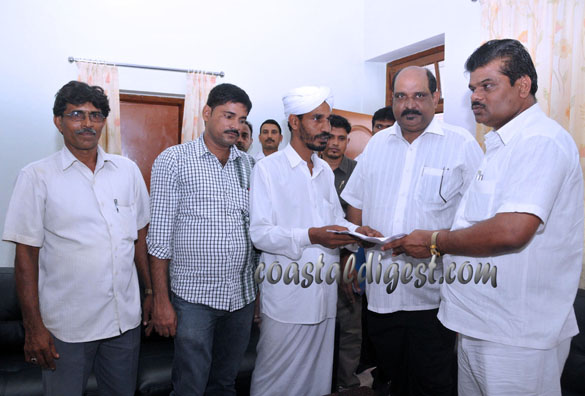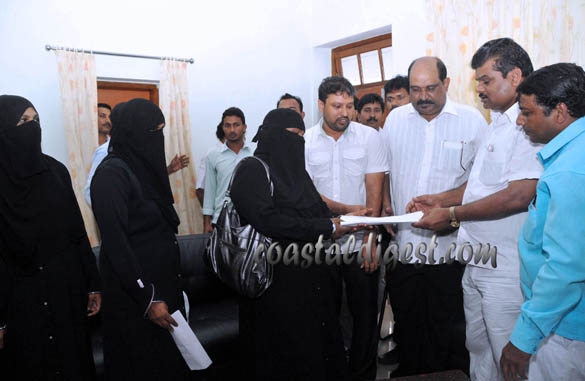
Mangalore, June 26: The Karnataka Minorities Development Corporation will be disbursing loan and subsidies under eight different schemes. However, not many applications have been received from Sullia taluk and Christians, pointed out Corporation President A N Aboobaker.
Addressing a press meet, Aboobaker said that June 30 is the last date to receive applications. He also said that he shall take up a tour to urge the minorities to apply for loans under various schemes in various districts.
The tour will begin from DK district, he said.
“The poor response from Sullia could be because of people being unable to submit applications to the Corporation office in Mangalore. Efforts will be made to address this problem,” he said.
The government has earmarked Rs 3.68 crore under the Christian Development Scheme.
Under Arivu Scheme, 409 applicants can receive Rs 81.80 lakhs. However, many have not applied.
Under the Shramashakthi scheme, the target is to disburse loan of Rs 81.80 lakh to 409 individuals.
However, only 175 applications have been received so far, he regretted.
Under the Micro Loan Subsidy scheme 817 beneficiaries have been allotted with Rs 81.70 lakhs but only 103 applications have been received,he said.
In 2012-13, Rs 100 crore has been earmarked for the minorities in the state and Rs 22.50 crore has been allotted for the Christians.
For the DK district, Rs 7.03 crore has been allotted for minorities and Rs 3.68 crore for the Christian development scheme. A total of Rs 10.71 crores has been allotted for minorities in the district.
In the current year, the target is to disburse Rs 43.2 lakh to 288 beneficiaries in the Swawalambana 'Margin' Money Loan Scheme.
In Arivu Loan Scheme Rs 2.37 crore will be disbursed among 1,188 beneficiaries.
Under Sharamashakthi Scheme Rs 1.29 crore will be distributed to 648 beneficiaries, Rs 1.72 crore has been earmarked to be distributed among 1,728 beneficiaries under Micro Loan Subsidy scheme and Rs 1.20 crore has been allotted to 120 beneficiaries under the Ganga Kalyana Scheme. Hence, a total of Rs 7.03 crore has been earmarked among 3,972 beneficiaries, he added.
Aboobaker revealed that as many as 9,946 beneficiaries were given a sum of Rs 176.2 crore in the last three years.
However, this year more amount has been earmarked for minorities. In the year 2008-09, about Rs 3.48 crore, in 2009-10 Rs 3.73 crore, in 2010-11 4.63 crore and in the year 2011-12, Rs 5.76 crore had been earmarked, he revealed.
Under National Minorities Development and Finance Corporation's direct loan schemes, a sum of Rs 10 crore has been allotted to the state, of which Rs one crore has been allotted to the district, he said.







Comments
Add new comment